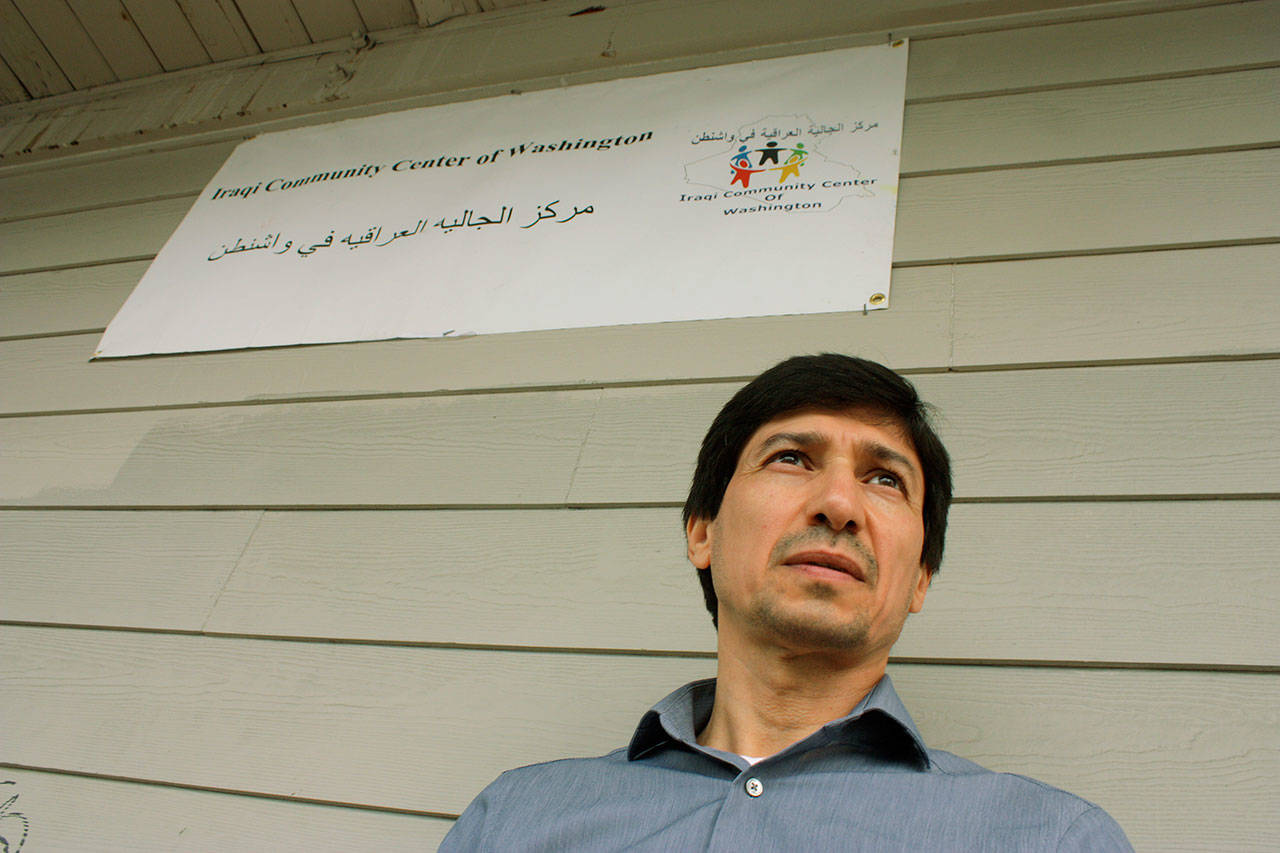Abbas Makassees has plans and a destination, but he often has trouble getting there.
So the Iraqi-American teen often turns to a conveniently located center, a hub tucked away in a modest, two-story building on Kent’s East Hill.
“It is really important, especially for teens with needs,” said the 17-year-old Kentlake High School junior. “It’s a place to gather for all of us … helps us get together and to get around. … You see, many of us don’t have a car.”
The Iraqi Community Center of Washington recently received the keys to a retired Metro Transit Vanpool van it will use to transport seniors and youth to events throughout the region.
For high school students, the van can make it possible for them to visit colleges, interview for a job or make an important appointment.
Transportation is among the many services the center provides as it continues to blossom as a go-to spot for many under-served people – primarily immigrants and refugees – from all walks, not just the Arabic-speaking community.
The center, established in 1998 as a nonprofit community-based organization centered in Seattle, has since spread its reach throughout South King County. Only recently has the center opened its doors in Kent, at 10610 SE Kent-Kangley Road, Suite 207.
The purpose of the center is clear, its demands great. The center continues to focus on providing culturally and linguistically competent social services to Iraqi refugees and immigrants in areas so they can become self-sufficient and make a successful transition to life here.
Yahya Algarib, the center’s executive director, said the center is making a difference. The hub’s many resettlement services throughout the region serve about 500 men, women and children each year, helping them gain their feet financially and to better assimilate socially and culturally to their new home.
“I think we do, yes,” Algarib said of making an impact. “It helps them overcome cultural and language barriers … and how to mix yourself with the system here.”
In essence, the center connects people to basic need remedies. Services include housing, immigration, medical assistance, employment, obtaining a driver’s license, case management, advocacy and referrals to social, medical and legal service providers.
Others programs involve art, culture, youth and senior programming, women’s support groups and homeless prevention. The center works with agencies to make those services possible.
The center also features opportunities, like fielding a soccer team and organizing a cultural festival to celebrate and share with the greater Kent community.
“We try to be a one-stop shop for them,” said Marwa Sadik, the center’s program manager. “We try not to refer them out. We try to do everything in house because transportation is an issue for them. … Here, staff can meet them right away with little wait, and maybe that’s one of the things they like about us.”
Many immigrants arrive here isolated, Sadik explained, not knowing where or whom to turn to.
“We just help them with paperwork and translation,” she said. “Sometimes we have families who come here for advice. Like, ‘what should I do? What is the credit card? What is the car insurance.’ It’s very basic information for us, but it’s a big deal for them.”
Breaking barriers and gaining acceptance in a new land is difficult for her clients.
“Mostly, a lot of people look down at refugees,” Sadik said. “But they want to be here to learn, and they will learn, and they will impact this country positively.”
To volunteer, donate items or obtain more information about the center, visit rccw.org or Facebook.
Talk to us
Please share your story tips by emailing editor@kentreporter.com.
To share your opinion for publication, submit a letter through our website https://www.kentreporter.com/submit-letter/. Include your name, address and daytime phone number. (We’ll only publish your name and hometown.) Please keep letters to 300 words or less.

